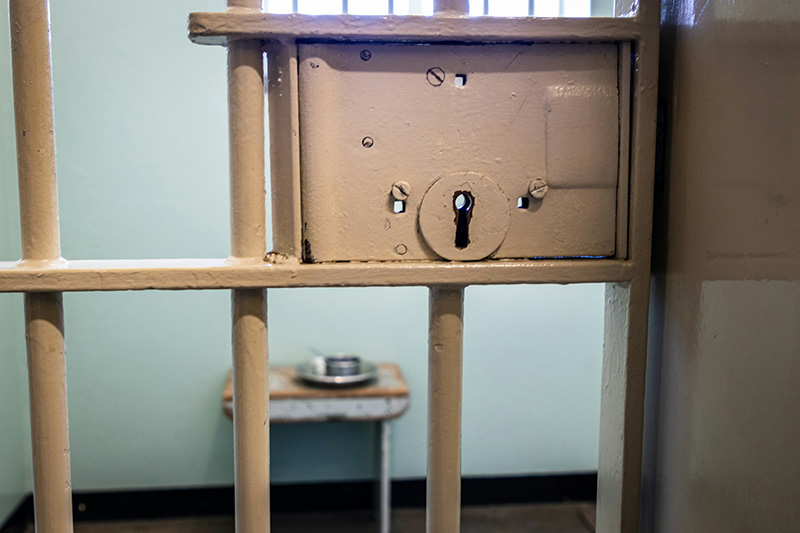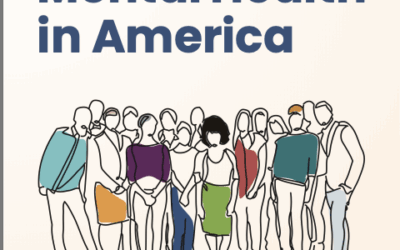Current practice counterproductive, worsens illness
Proposals from Senator Jennifer Boysko and Delegate Vivian Watts in the Virginia legislative session attempt to fix one of the broken ways we respond to someone who needs help (SB 357, HB 267). Their introduced bills address the current practice of bringing felony charges against someone with a serious mental illness or intellectual/developmental disability whose behavior, in the midst of a mental health crisis, gets them arrested for assaulting a law enforcement officer. The “assault” can be a scratch or even hitting an officer with an onion ring. Once arrested, the individual is taken to jail with a felony charge that upon conviction requires a mandatory minimum 6-month jail sentence.
Officer safety is potentially at risk when responding to any call for service. When a family member calls because their loved one is in a mental health emergency, the person in crisis may need to be taken to the hospital for an evaluation. They could resist, resulting in a verbal and/or physical altercation and possible injury. Access to a weapon raises the risk level for anyone on the scene.
While a response to these crisis calls always carries risk, 90% are resolved without injury or very minor injury to the officer. However, if there is any assault against the officer, no matter how minor, the police charge the person with a felony assault on a law enforcement officer.
Skilled first responders can deescalate many crisis situations, and their actions have saved lives. The media is also full of examples when an officer misperceives a potential threat and over reacts, including using deadly force, with tragic consequences for all parties. A family member who calls police for help ends up regretting that call for the rest of their life.
The current law covering felony assault is intended to protect law enforcement both physically and symbolically, to discourage disrespect as well as physical injury from the public. Although a desirable goal, it presumes that a citizen has capacity to control their own behavior. Someone in a crisis state due to their serious mental illness lacks that capacity.
The point of these legislative initiatives is to allow an exception to the felony charge when the citizen is clearly in a crisis state that is causing the “assaultive” behavior. Other laws currently in place provide officers with several options to place charges. Exempting the felony charge in these situations, with its mandatory jail sentence upon conviction, does not disrespect or devalue police, or remove their ability to arrest and charge someone with a related offense when needed.
The current law doesn’t work in these situations. It doesn’t protect law enforcement from assault. It doesn’t deter someone in a mental health crisis from exhibiting behavior they can’t control. It doesn’t help the person in crisis – In many cases it makes their illness worse.
The best response to these types of crisis calls, when there is no serious injury, should be to divert the person from the criminal justice system altogether and engage them with the behavioral health system. This is one goal of the recently implemented “988” suicide crisis line. When used more widely, calling 988 will decrease the need for as many police responses.
Once arrested for a felony, the criminal process snowballs from arrest to jail to court to jail and possibly to a state hospital, but the damage along the way can be devastating. Isolated from family support, without previously prescribed medication and other treatment, the now ‘criminal defendant’ enters a downward trek of worsening mental illness. This legislation is just a beginning step to diversion from arrest and the ensuing spiral.
Unfortunately, resistance to the original bills resulted in the patrons submitting substitute versions that remove language prohibiting felony arrest and prosecution. Instead, the new versions create an “off ramp” at the trial stage. Once the arrested person goes to trial, the substitute bills would allow an “affirmative defense to prosecution” in these cases. The defense could stipulate the facts while presenting evidence that the behavior was caused by or had a direct and substantial relationship to the person’s illness, disorder, or disability.
By allowing an affirmative defense, the revised bills recognize the inappropriateness of a felony conviction in these cases, but they don’t intervene early enough in the process. Someone experiencing crisis could still be arrested for the felony and spend many weeks in jail.
Irvo Otieno was charged with this offense while being evaluated at a local hospital, which caused him to be taken to jail instead. With tragic consequences, his condition deteriorated, and days later he was suffocated by deputies restraining him during admission to a state hospital. His mother testified to the legislative subcommittee that she supported the original bill language: “My son did not live to see his day in Court.”
Despite the substitute bill’s significantly more limited impact, providing for an affirmative defense is an important step towards a better system. Courts will hear vital information about the defendant’s mental state and be able to find them not guilty. The defendant may spend less time in jail for displaying symptoms of mental illness.
Senator Boysko and Delegate Watts are doing whatever they can to improve how our system treats those with a serious mental illness or disability. Their substitute bills are likely to pass both the House and the Senate by slim margins, and we hope the Governor will sign them. The challenge for next year is to find a solution that connects people in crisis to the behavioral health system instead of to jail that all stakeholders can live with. The lives of our fellow citizens depend on it.




